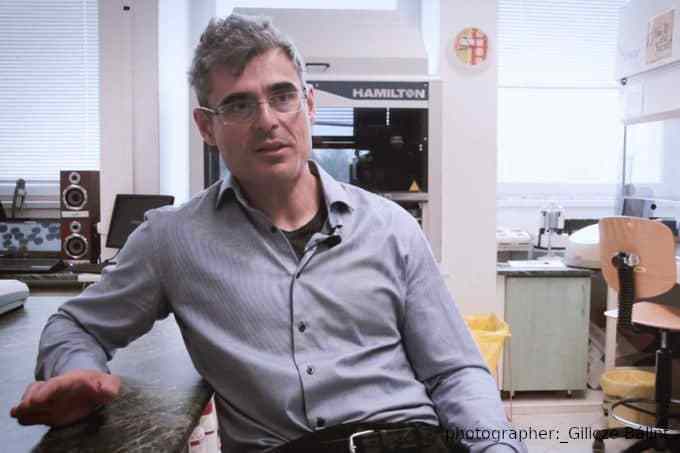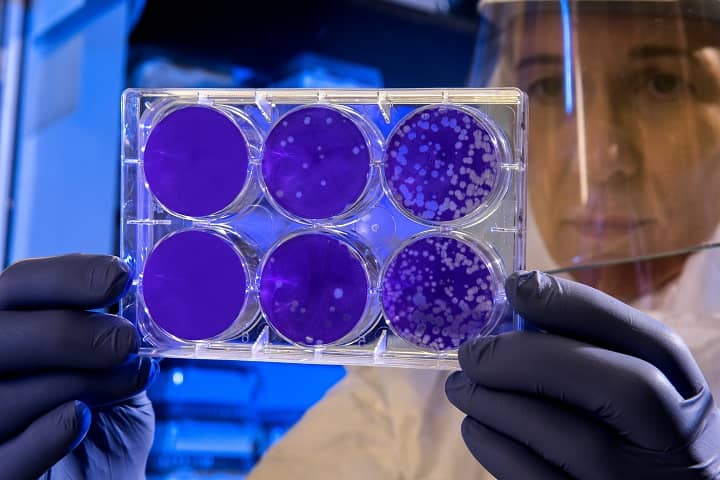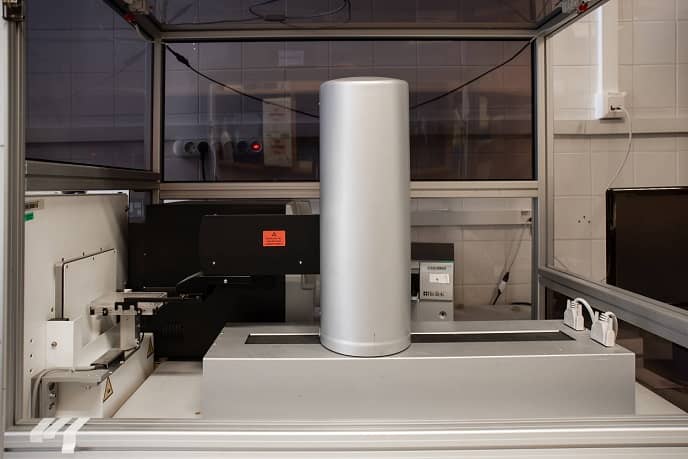In June we had a super exciting Alumni Hungary Webinar with the internationally acclaimed biologist Csaba Pál, who is the senior researcher of the Szeged Biological Research Center. We caught him for a quick interview.
In June we had a super exciting Alumni Hungary Webinar with the internationally acclaimed biologist Csaba Pál, who is the senior researcher of the Szeged Biological Research Center. He specializes in antibiotic resistance and genome engineering and has published more than 50 scientific papers in prestigious journals such as Nature or Science. In his webinar, he provided an overview of their research in Szeged on the antibiotic-resistant “super bacteria” and the development of new antibiotic molecules.
How did you become interested in antibiotic resistance? Why is this field interesting to you?
This topic is intellectually challenging and has obvious clinical implications. Put it differently, if you aim to understand and change the world as well, this topic is particularly appealing. It also demands integrating knowledge from a wide range of disciplines from genomics, evolutionary biology to artificial intelligence.

Antibiotic-resistant bacteria cause serious health risks, which is now a global problem. Why have the so-called “super bacteria” become so widespread?
Humans are to blame. The massive overuse and irrational daily usage of antibiotics generate massive evolutionary pressure on pathogenic bacteria. These nasty bugs simply adapt to the altered conditions, and unfortunately for us, very rapidly and efficiently. But this should not surprise us. Bacteria can tolerate extreme living conditions and they are bona fide survival machines.
Super bacteria causes many deaths worldwide. Why is it so difficult to find long-term solution/drugs against them?
Antibiotic-resistant bacteria are by nature very diverse, cause many different infectious diseases, and the symptoms depend on the human immune system. Hence, it is unlikely that a “super drug” would solve the problem of super bacteria.
What are the goals of your research team at the Szeged Biological Research Centre?
We design new antibiotics that can attack certain superbugs at multiple vulnerable points, and thereby they cause collateral damage. As a consequence, bacteria have a very limited chance only to develop resistance by mutations. Animal experiments showed that our molecules can save mice when infected with these bugs. What works in mouse, might also work in human. Currently, we aim to find industrial partners to develop these molecules further.

What would you suggest, how should we, who are not experts take antibiotics?
I am not a clinical expert and I do not directly work with patients. I fight against these bacteria in the lab on a daily basis. However, my general advice is to follow the rigorous protocols and the doctors’ advice. This is not to say that the medical protocols may not change in the future. They will surely do, but after very careful and rational considerations only. Trust in science: let humankind’s fight against COVID-19 be a good example of how scientific development can affect our daily life.

In May the Alumni Hungary Webinar Series started its brand new series. The webinars feature outstanding Hungarian scientists and professionals presenting their fields of expertise. To read our previous interview with architect Samu Szemerey, click HERE.